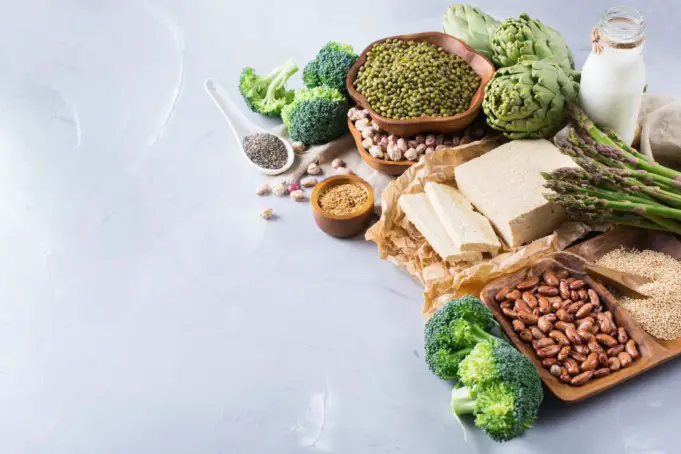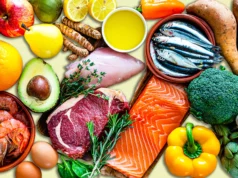In our very stressful lifestyles, we often tend to neglect the importance of proper nutrition. We all have heard the terms ‘Carbohydrates’, ‘Proteins’, ‘Fats’, ‘Vitamins’ and ‘Minerals’, but the role these nutrients play on our body is not dwelled into.
A committed individual is often led astray by articles online that possess inadequate information. With the misguided knowledge most people possess of a balanced diet, it becomes exceedingly difficult for vegetarians to get enough protein without ingesting animal protein sources.
Proteins are important to living beings as it repairs and builds muscle tissue, cell growth, hormone production and other vital functions undertaken by the body. Without adequate protein in our diets, we experience body fatigue and weak immunity from diseases.
Most vegetarians are under the assumption that their diets consist of every nutrient the body needs to sustain itself and meet all its nutritional requirements. On the other hand, vegetable protein sources are considered inferior to animal protein sources.
Plant food sources are in truth not inferior in terms of nutritional quantity to animal food sources, and they also distribute a number of macro-nutrients to our bodies which animals cannot.
Going beyond the vegetarian and non-vegetarian divide, there’s much we can gain from ingesting vegetarian food sources. These food sources are often unknown to most people and thus, this article aims to acquaint you with the best plant protein sources.
Follow these suggested food items to enrich your existing diet:
Tempeh
Tempeh is not only a great protein source, it also possesses high amounts of fiber, iron, potassium and calcium. Tempeh, being a fermented product, allows for quick digestion and absorption. It is also incredibly versatile as it provides a number of variants to choose from.
Tofu
Tofu is perhaps the most popular vegetarian protein source. Tofu is still commonly found in dishes all over Asia. Tofu is revered for its ability to soak up flavour from a number of sources. Tofu offers a number of other benefits as well. It is a great source of vitamins and also minerals like iron and calcium.
Sea Vegetables
Sea Vegetables, the most popular being Arame and Dulse, are revered for the immense nutritional benefits they provide. Along with their nutritional properties, they also contain innumerable medicinal and healing qualities.
Being more of an acquired taste, these vegetables do not disappoint in their nutritional benefits, which you can receive from their simple addition to salads. Sea vegetables also come in different variants like Kelp, Kombu, Nori, and Spirulina to name a few.
Miso
Being easily available in a number of variants is perhaps the greatest advantage Miso holds over other plant protein sources, each of which lends a distinctive taste to your taste buds.
Miso can be used in a stand-alone soup recipe or even as an addition to a well prepared dish as seasoning. It’s different variants are Hatcho miso, Kome miso and Mugi miso.
Nuts
Nuts are incredibly nutritious and provide a number of benefits on its ingestion. Rich in vitamin deposits, fatty acids and fiber, they prove to be great additions to an individual’s diet.
It is important to consume nuts in moderation and not make a diet focused on it. Nuts contain healthy fats which help preserve heart health. Eating nuts raw is a great idea and this method is by far the most nutritionally beneficial way to consume nuts.
Almonds, Cashews, Chestnuts, Peanuts, Pecans, Pine Nuts, Pistachio Nuts and Walnuts are the most nutrient rich nuts available. Grab a handful, and extoll the benefits of this healthy snack.
Another great way to consume nuts is to extract nut milk. Nut milk is extremely rich in vitamins and minerals and is very easily prepared.
Seeds
When compared to nuts, seeds appear to provide very similar benefits. Grinding seeds a bit, before consumption, is a good idea to ensure your body is able to digest it better.
Sunflower seeds are extremely rich in potassium content which affects the sodium levels in the body. They are also revered for being an incredible source of essential fatty acids. Flaxseeds provide similar benefits alongside promoting intestinal health.
Pumpkin seeds are bountiful and much loved for their high calcium and iron content alongside essential fatty acids. Sesame seeds are regarded as the best sources for calcium.
Beans and Legumes
Beans and legumes gain favour from most vegetarians for their protein content. Being high in carbohydrate content too helps its popularity as it can be prepared along other protein rich foods.
Beans like Black beans, Kidney beans, Garbanzo beans, Navy beans and Pinto beans are revered for their high nutrient content.
Lentils can be found in two varieties, Soybeans being the most protein potent of them all. Known for its versatility, they can be used to prepare a wide range of vegetarian dishes. Beans are also great additions to salads.
If you don’t mind your food sources to contain some dairy and egg products, you could go for the following suggestions:
Whey Powder
Whey protein is a great protein source and can be found in powder form. Extremely concentrated, it is very easily digested by the body and hence readily absorbed. Whey protein powder comes in whey powder concentrate or whey powder isolate.
Whey powder is gaining prominence across the globe for its role as a supplement. Whey protein is also highly useful for its role in boosting our immune system.
Yogurt
Being a fermented product, Yogurt is incredibly easy to digest. Yogurt can also be tolerated by those persons who are allergic to dairy products. Yogurt is replete with good bacteria which is very significant to our health.
Cheese
Cheese is by far everyone’s favourite dairy product. Besides being extremely rich in protein, cheese is very versatile.
Cheese is rich in vitamins A and D, calcium and even in enzymes. Natural cheese is a very nourishing basic food providing valuable protein, easily digestible butterfat, vitamins A and D, calcium, and even enzymes.
In conclusion, you must take home the message that it is a good idea to plan your meals ahead of time and distribute your protein intake in a number of meals instead of binge eating.
This way you can be sure to supply your body with nutrition of the highest order. Above all remain consistent with your diet and also add variety by choosing from a wide range of options.













